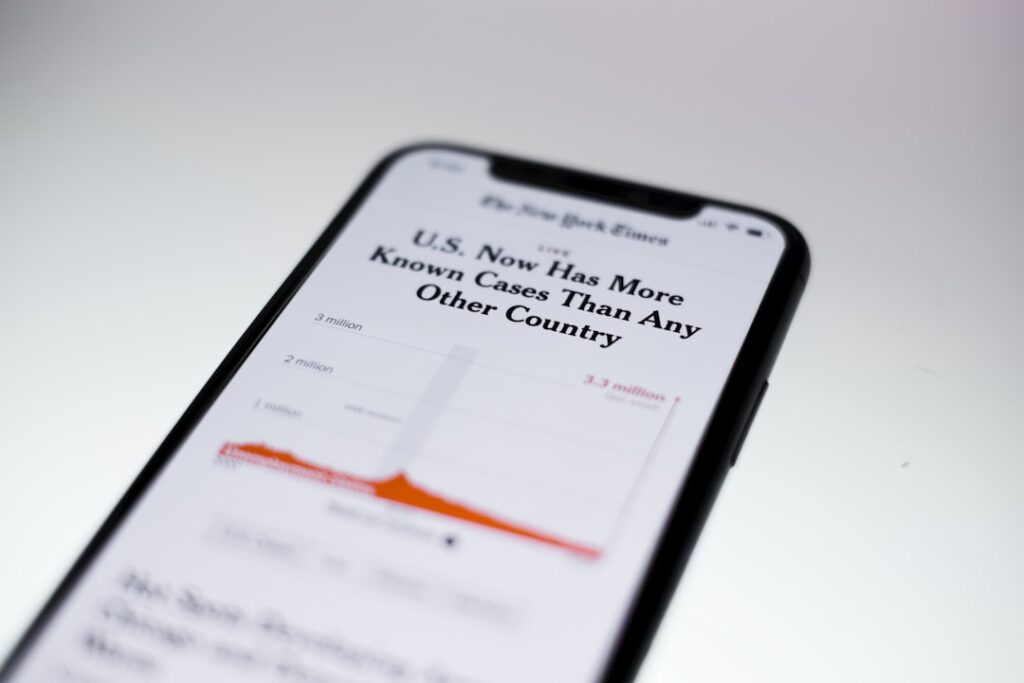In today’s fast-paced world, understanding AI financial literacy is becoming increasingly essential. As we navigate through our financial lives, the integration of artificial intelligence into money management is transforming how we approach budgeting, investing, and saving. Many of us struggle with financial literacy, often feeling overwhelmed by the complexities of managing our finances.
However, AI is stepping in to simplify these processes, making it easier for us to understand and take control of our financial futures. AI financial literacy encompasses the knowledge and skills needed to effectively utilize AI tools for managing our finances. With the rise of technology, we find ourselves in a position where we can leverage AI to analyze our spending habits, predict future expenses, and even suggest investment opportunities tailored to our unique financial situations.
This shift not only empowers us to make informed decisions but also helps us overcome the anxiety that often accompanies financial management. By embracing AI financial literacy, we can enhance our understanding of personal finance and ultimately improve our financial well-being.
Key Takeaways
- AI financial literacy is revolutionizing money management by providing advanced tools and insights for individuals and businesses.
- AI is empowering individuals to make smarter financial decisions through the rise of AI financial tools that offer personalized recommendations and insights.
- AI tools are helping people save, invest, and manage debt by providing advanced analytics and automation for financial management.
- AI is providing personalized financial advice and recommendations by analyzing individual financial data and behavior to offer tailored solutions.
- AI tools are making financial literacy more accessible and inclusive by overcoming financial barriers and providing education and resources to a wider audience.
- The future of AI financial literacy is shaping the future of money management and financial planning by offering more advanced and personalized solutions for individuals and businesses.
The Rise of AI Financial Tools: How AI is Empowering Individuals to Make Smarter Financial Decisions
Personalized Recommendations for Unique Circumstances
AI financial tools offer tailored advice based on individual circumstances, bridging the gap between data analysis and personalized financial planning. With the ability to track spending habits, analyze market trends, and provide actionable recommendations, these tools put individuals in control of their financial futures.
User-Friendly Interfaces for Enhanced Financial Literacy
The intuitive design of AI financial tools makes it easier for individuals to engage with their finances, reducing the intimidation factor associated with traditional financial management methods. By leveraging these AI-driven solutions, individuals can enhance their financial literacy and make decisions that align with their long-term goals.
Empowering Informed Financial Decisions
From budgeting apps to investment platforms, AI financial tools provide individuals with the information they need to make informed choices. By embracing these innovative solutions, individuals can take charge of their finances, make smarter decisions, and achieve their financial objectives.
The Benefits of AI Financial Literacy: How AI Tools Are Helping People Save, Invest, and Manage Debt

The benefits of AI financial literacy are profound, as AI tools are helping us save, invest, and manage debt more effectively than ever before. One of the most significant advantages is the ability to automate savings. Many AI-driven applications can analyze our spending patterns and suggest optimal savings strategies tailored to our income and expenses.
This automation not only simplifies the saving process but also encourages us to set aside money for future goals without the constant need for manual intervention. When it comes to investing, AI tools are revolutionizing how we approach the stock market and other investment opportunities. By utilizing algorithms that analyze market trends and historical data, these tools can provide us with insights that help us make informed investment decisions.
For those of us who may feel intimidated by investing or lack the time to research extensively, AI offers a solution that empowers us to grow our wealth with confidence. Additionally, AI tools can assist in managing debt by analyzing our repayment options and suggesting strategies that minimize interest payments while maximizing our ability to pay off loans efficiently.
The Role of AI in Personal Finance: How AI is Providing Personalized Financial Advice and Recommendations
The role of AI in personal finance is becoming increasingly prominent as it provides personalized financial advice and recommendations tailored to our individual needs. Traditional financial advisors often come with high fees and may not always be accessible to everyone. However, AI-driven platforms are democratizing access to financial advice by offering affordable solutions that cater to a broader audience.
This shift allows us to receive guidance without the burden of high costs. AI’s ability to analyze our financial data enables it to offer personalized recommendations that align with our goals and risk tolerance. For instance, if we are looking to save for a home or plan for retirement, AI tools can create customized savings plans based on our current financial situation and future aspirations.
This level of personalization not only enhances our understanding of personal finance but also instills confidence in our decision-making processes. By leveraging AI for personalized advice, we can navigate our financial journeys with greater clarity and purpose.
Overcoming Financial Barriers with AI: How AI Tools are Making Financial Literacy More Accessible and Inclusive
Overcoming financial barriers is a critical aspect of achieving financial literacy, and AI tools are playing a vital role in making this possible. Many individuals face challenges such as limited access to traditional banking services or a lack of knowledge about personal finance. AI-driven solutions are breaking down these barriers by providing accessible resources that cater to diverse populations.
For instance, mobile apps designed for budgeting or investment can be accessed from anywhere, allowing us to manage our finances on the go. Moreover, AI tools often come equipped with educational resources that help us build our financial knowledge from the ground up. These resources can include articles, videos, and interactive tutorials that explain complex concepts in simple terms.
By making financial education more accessible, AI empowers us to take control of our finances regardless of our background or previous experience. This inclusivity fosters a sense of community among users who share similar challenges and aspirations, ultimately leading to a more financially literate society.
The Future of AI Financial Literacy: How AI is Shaping the Future of Money Management and Financial Planning

As we look toward the future of AI financial literacy, it is clear that artificial intelligence will continue to shape the way we manage money and plan for our financial futures. The ongoing advancements in technology promise even more sophisticated tools that will enhance our ability to make informed decisions. For instance, as machine learning algorithms become more refined, we can expect even greater accuracy in predicting market trends and personal finance outcomes.
Furthermore, the integration of AI into everyday financial activities will likely become seamless, allowing us to manage our finances with minimal effort. Imagine a future where our budgeting apps automatically adjust based on real-time spending patterns or where investment platforms provide instant feedback on portfolio performance. This evolution will not only simplify money management but also empower us to take proactive steps toward achieving our financial goals.
In conclusion, understanding AI financial literacy is essential as we navigate an increasingly complex financial landscape. The rise of AI financial tools is empowering individuals like us to make smarter decisions while overcoming barriers that have historically hindered access to financial education. As we embrace these advancements, we can look forward to a future where managing money becomes more intuitive and accessible for everyone.
By harnessing the power of AI in personal finance, we can build a brighter financial future together.
FAQs
What is AI financial literacy?
AI financial literacy refers to the use of artificial intelligence (AI) technology to provide tools and resources that empower individuals to make smarter decisions about their personal finances. These tools can include budgeting apps, investment platforms, and financial education resources that use AI to analyze and provide personalized recommendations.
How does AI empower smarter money management?
AI empowers smarter money management by providing personalized insights and recommendations based on individual financial data. AI can analyze spending patterns, identify opportunities for saving or investing, and provide real-time updates on financial trends, helping individuals make more informed decisions about their money.
What are some examples of AI financial literacy tools?
Examples of AI financial literacy tools include budgeting apps that use AI to categorize and analyze spending, investment platforms that use AI to provide personalized investment recommendations, and chatbots that offer financial advice and education based on individual user data.
How can AI financial literacy tools benefit individuals?
AI financial literacy tools can benefit individuals by helping them better understand and manage their finances, identify opportunities for saving and investing, and make more informed decisions about their money. These tools can also provide ongoing education and support to help individuals improve their financial literacy over time.
Are there any potential drawbacks to using AI financial literacy tools?
Potential drawbacks to using AI financial literacy tools include concerns about data privacy and security, as well as the potential for over-reliance on AI recommendations without fully understanding the underlying financial principles. It’s important for individuals to use AI tools as a supplement to, rather than a replacement for, their own financial knowledge and judgment.






